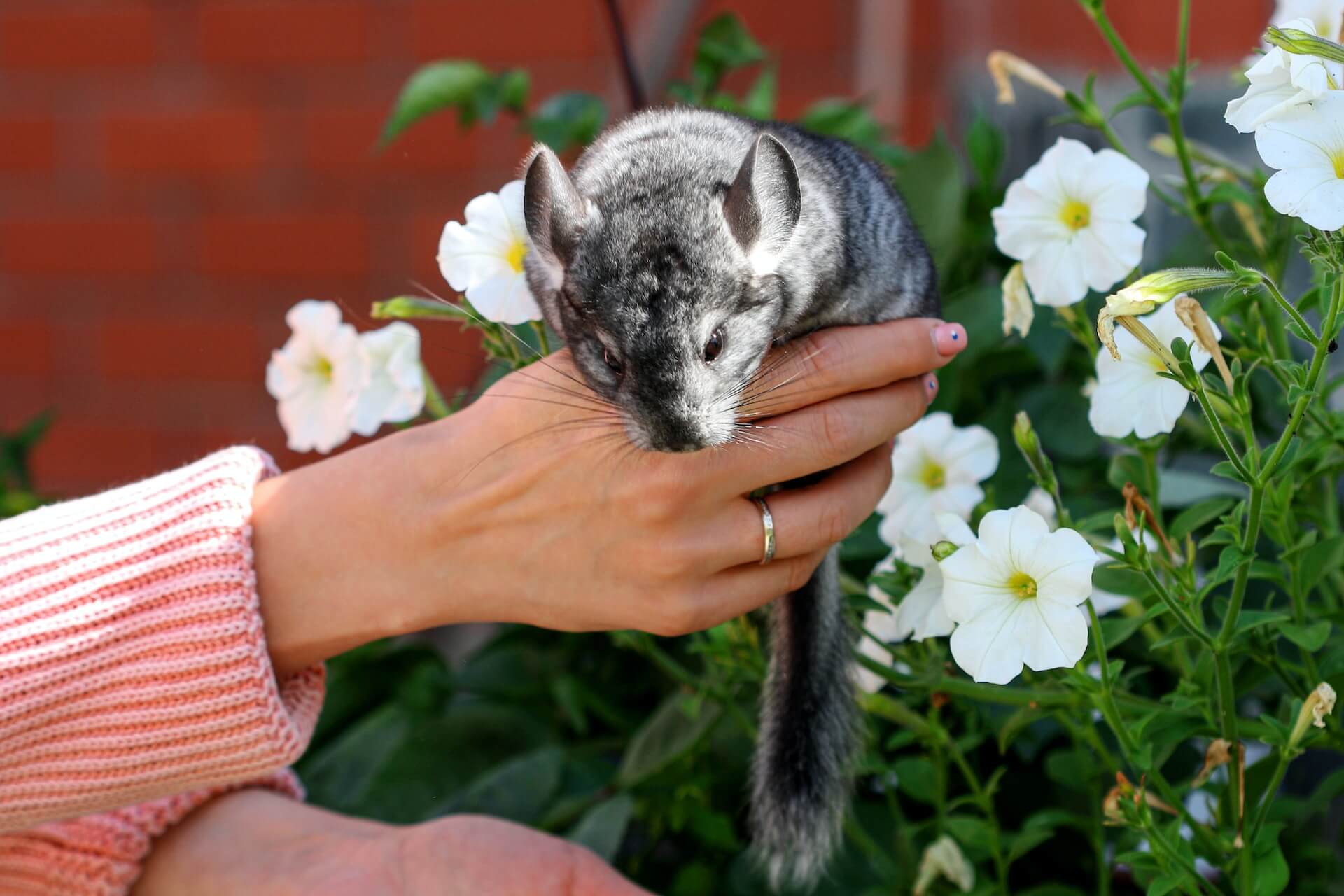Chinchillas are beloved for their fluffy fur, playful antics, and charming personalities. As with all pets, chinchillas age, and their care requirements change as they enter their senior years. Understanding chinchilla lifespan and the aging process is essential for providing the best possible care for your furry friend. In this guide, we’ll explore chinchilla lifespan, signs of aging, and tips for caring for senior chinchillas.
Chinchilla Lifespan
The typical lifespan of a chinchilla ranges from 10 to 20 years, with proper care and a healthy environment. Factors that can influence a chinchilla’s lifespan include genetics, diet, exercise, and overall well-being. Here are some key considerations regarding chinchilla lifespan:
1. Genetics
Genetics play a significant role in determining a chinchilla’s lifespan. Some chinchillas may be predisposed to certain health issues due to their genetic makeup, while others may be more robust and live longer.
2. Diet
A balanced and appropriate diet is crucial for a chinchilla’s longevity. Providing high-quality hay, fresh water, and specially formulated chinchilla pellets is essential. Avoid sugary or fatty treats and ensure your chinchilla has access to fresh hay throughout their life.
3. Exercise
Regular exercise is vital for chinchillas to maintain their health. Providing a spacious and well-furnished cage with opportunities for physical activity helps keep them active and engaged.
4. Preventative Care
Regular veterinary check-ups can help catch and address health issues early, potentially prolonging a chinchilla’s life. Dental care is particularly crucial, as chinchillas’ teeth continuously grow and may require trimming.
Signs of Aging in Chinchillas
As chinchillas age, they may exhibit various signs of aging that require special attention and care. Here are some common signs of aging in chinchillas:
1. Slower Movements
Senior chinchillas may move more slowly and have reduced agility compared to their younger counterparts. They may be less inclined to engage in vigorous activities.
2. Weight Loss or Gain
Changes in weight can indicate underlying health issues in aging chinchillas. Monitor your chinchilla’s weight and consult with a veterinarian if you notice significant fluctuations.
3. Dental Problems
Dental issues, such as overgrown teeth or difficulty eating, can become more common in senior chinchillas. Regular dental check-ups and providing appropriate chewing materials are essential.
4. Fur Changes
Chinchilla fur may become thinner or lose its luster as chinchillas age. Pay attention to any changes in your chinchilla’s coat and consult a veterinarian if you notice bald patches or skin issues.
5. Eye and Ear Problems
Senior chinchillas may experience vision and hearing changes. They may be more sensitive to bright lights or loud noises. Ensure a quiet and comfortable environment for your aging chinchilla.
Caring for Senior Chinchillas
Caring for senior chinchillas involves making adjustments to their environment, diet, and overall care routine. Here are tips for providing optimal care for aging chinchillas:
1. Comfortable Housing
Ensure your chinchilla’s cage is well-suited for their needs. Provide soft bedding material and low platforms to make it easier for them to move around. Avoid tall cages or structures that may pose climbing challenges.
2. Diet and Nutrition
Adjust your chinchilla’s diet to accommodate their changing nutritional needs. Senior chinchillas may benefit from softer foods, such as soaked pellets or fresh vegetables, if they have dental issues. Consult with a veterinarian for specific dietary recommendations.
3. Dental Care
Regularly check your chinchilla’s teeth for signs of overgrowth or dental problems. Offer appropriate chew toys and consider providing softer hay if your chinchilla has difficulty eating.
4. Exercise and Playtime
While senior chinchillas may be less active, it’s still essential to encourage gentle exercise. Provide opportunities for short playtime sessions outside the cage, but monitor their energy levels and adapt to their pace.
5. Vet Visits
Schedule regular veterinary check-ups for your senior chinchilla, ideally every six months or as recommended by your veterinarian. Address any health concerns promptly to ensure a higher quality of life.
6. Social Interaction
Continue to provide social interaction and mental stimulation for your chinchilla. Spend time with them, offer gentle petting, and engage in quiet play activities.
7. Create a Senior-Friendly Environment
Make adjustments to your chinchilla’s environment to accommodate their changing needs. Ensure easy access to food and water, reduce stressors, and create a peaceful atmosphere.
Conclusion
Caring for a senior chinchilla can be a rewarding experience that allows you to provide comfort and support to your aging pet. Understanding the signs of aging and making necessary adjustments to their care routine ensures that your chinchilla enjoys a happy and comfortable life in their golden years.
By maintaining a close relationship with a knowledgeable veterinarian and tailoring your care to your chinchilla’s specific needs, you can help your furry friend enjoy a longer, healthier, and more fulfilling life.



